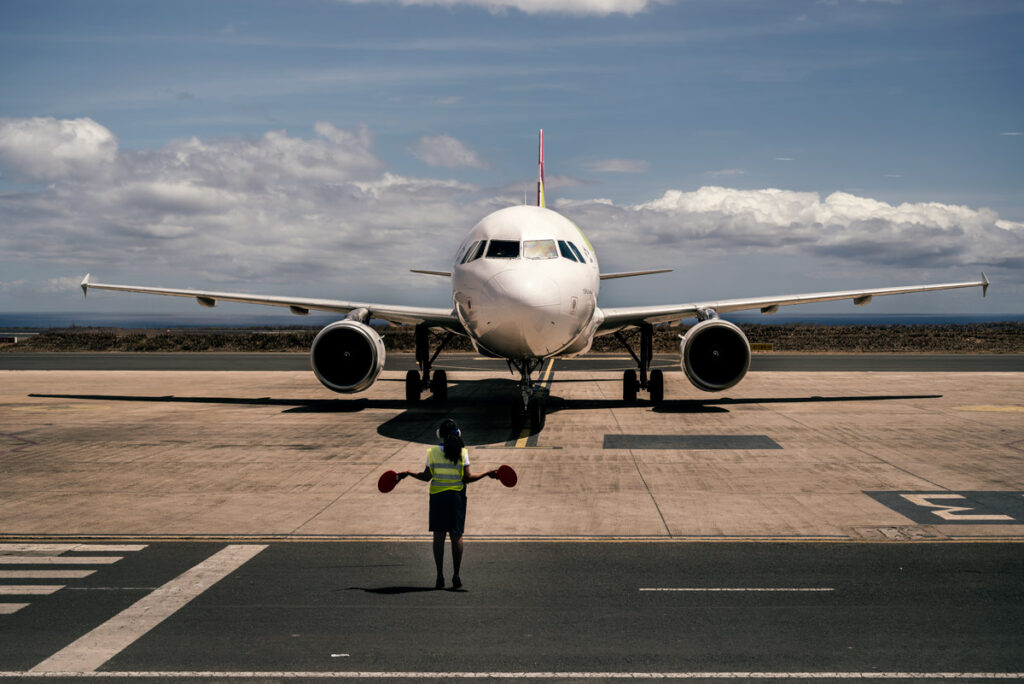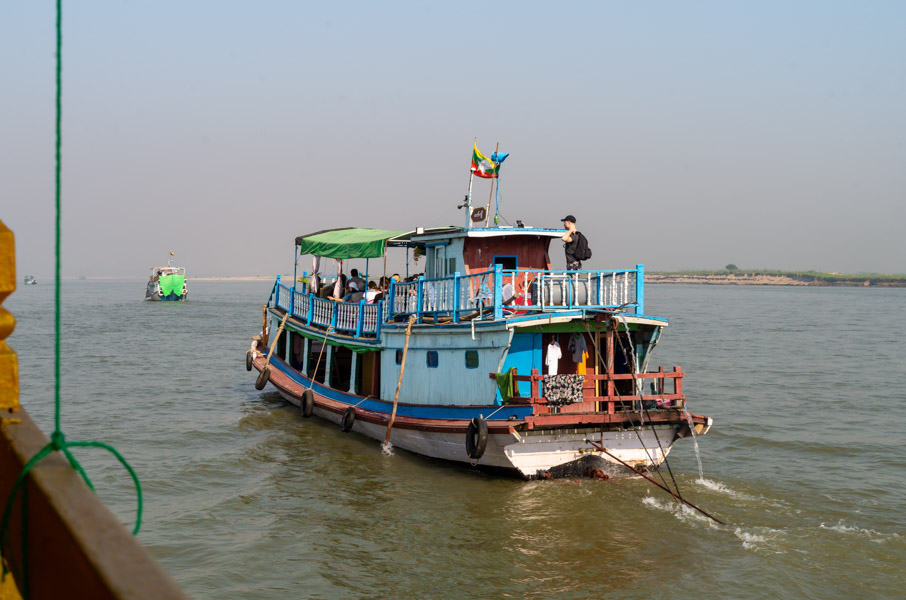
Traveling is selfish – we don’t need to fool anyone. Average package tourists take an airplane to their vacation spot and emit tons of CO2. The hotel where they spend two or even three weeks uses a lot of water and energy (often with devastating consequences for the local environment and the population) and working conditions in the tourism industry are often more than precarious. Not to mention further excesses of mass tourism (like sex tourism, display of ethnic minorities and much more).
Classic backpackers seem to be the ideal alternative: young, idealistic and culturally sensitive. They travel to the most remote spots of the world and seek cultural exchange wherever possible. But it is precisely the backpacker who not only flies to the beach once a year for the summer vacation to Egypt, but wherever possible scrapes up unused vacation days from the previous year or uses the semester vacation to travel to a remote destination. On-site it are particularly unusual activities that captivate backpackers and are anything but sustainable or meaningful: snorkeling in the last intact coral reefs, island hopping with overpowered speedboats or ATV tours through pristine jungle worlds.

Travel is an end in itself and is rarely sustainable. Cultural exchange often fails due to language barriers or takes place only very superficially – as is the case when you only spend a few days in one place.
Yes, we are addicted to travel and do it not for the world, but for us. We are drawn to distant places by a strong urge. We love adventure, are interested in history and politics of different countries and have fun getting to know people and collecting new impressions. It’s selfish, but that’s not why it’s bad. Just as travel educates us, opens our eyes to the countless grievances in the world and let us question our way of life again and again, so do others who feed on their travels. After a two-week beach holiday, many people feel refreshed and gain new strength to survive their dreary everyday office life. How many friendships have semesters abroad created? Isn’t it a wonderful, almost life-affirming sign that our cities, offices, schools and families are becoming increasingly multicultural? That we dare to put aside the fear of the strange and our prejudices? Mankind is a restless, wandering being, too curious and intelligent to never leave its limited territory. As long as there is the possibility to fly, people will fly.
We have also flown many times in the recent years
Occasionally only for a weekend. Admittedly – always with a guilty conscience, but we still flew. Especially because a part of Chris’ family lives in Thailand, we spent at least one annual vacation in this Asian country.
While planning our trip around the world, we kept discussing how we could minimize the ecological (negative) impact of our trip. The main question: do we allow ourselves to fly? In fact, Thailand – our first long term stopover – is relatively easy to reach by land. But that would mean leaving out countries like South Korea, Japan, Taiwan or Hong Kong. The alternative: don’t travel to these countries at all? Eventually visit those on a later trip via ferry? And apart from that: is a ferry really the better, means: more ecological, alternative to the airplane? And can’t this question be broken down any further? Isn’t the train better than the bus, the bike not better than the scooter? With the consequence that you will only move on foot in the end? There are excellent articles that compare different types of travel and their CO2 emissions (as the British daily The Guardian did in an older article). But too many variables influence the comparison, so that a general statement can hardly be drawn.

So can you be environmentally conscious and fly? Should one still fly in an age in which the facts about the effects of our modern consumer world lie so clearly and openly before us, in which heat periods, floods and extreme weather events increase in frequency? In our opinion, there are two answers to this question. The first is that people voluntarily will not fly less. In order to achieve this, the national and international rail networks would have to be expanded (there was a time when a rail connection from Berlin to Baghdad was planned and isn’t the Trans-Siberian railway the symbol for a network that connects people and cultures?), airfares adjusted to actual external costs and short-haul flights may be banned entirely. The second answer, however, is that each sacrifice of consumption makes a small contribution until the critical mass is reached. Unfortunately, the scientifically backed admonitions of the past thirty, if not forty years have had no effect on persuading private individuals or companies to act sustainable. More and more resources are consumed every day, more and more exhaust gases are emitted, forests are cut down and air travel is increasing, which leads us to answer No. 1 again.
Anyone living in an industrialized country will hardly be able to limit their ecological footprint to a healthy level.
As in all areas of life, the world shouldn’t be divided into black and white. Compromises and the gray shades between extremes should be the yardstick for our agency. So it is not constructive to put every gram of CO2 emission of a long-distance trip on the scales. Had we – instead of traveling – decided to stay at home with a normal office job, the daily commute to work, the use of space, participation in social life, consumption and leisure activities (in which we are engaged to a much lesser extent while travelling) would have deteriorated our ecological footprint. To be born in a rich country and to participate in society inevitably means that we emit more CO2 and use more resources than is good for our earth.
So again: can you be environmentally conscious and still fly? Our answer: yes … BUT! For many people, flying is part of their life in a globalized world. Members of families are spread across the globe, the economy craves ever more open borders and people increasingly leave their comfort zone and no longer educate themselves only in libraries, but at cultural and historical sites around the world. Supermarket shelves are full of overseas goods, more and more students are learning foreign languages from the first school class. The world is getting closer, and as many problems as it creates, it’s a great development in itself. If we’re honest, hardly anyone wants to live without globalization anymore. It is therefore all the more important that we question ourselves, always educate ourselves, remain critical and stand up for a better world for everyone.

Our guidelines for more sustainable travel
We have found the following guidelines for us, which we use as an orientation to keep our negative impact as low as possible, especially when traveling:
- We hitchhike as often as possible because the cars would be on the road anyway.
- We only fly when there is no other option. When we fly, we compensate for the flight.
- We reduce our garbage (i.e. avoiding bags and plastic where possible).
- We use local services instead of chains and franchises.
- We seek open exchange with people, show respect and understanding.
- We pay a fair price.
- We do not participate in any activities that have negative consequences for nature, culture or people.
- We question our consumption – what do we really need in the long term? Does a product make us permanently happy? Can we buy the product second-hand instead?
Is this how the solution looks like to stop the dreaded climate change? Of course not. It’s just our humble, pragmatic contribution to it. It is time to overcome the point where only the question of guilt is being debated and horrific terms such as “aviation shame” and “eco-terror” are being spread. It is good and right that everyone discusses and questions their travel behavior. But a rethink in politics, business and society will enable us to live sustainable (and maybe one day we will travel like that). The faster this rethinking takes place, the better the chance that we can keep the comforts of the 21st century: a globalized world.
